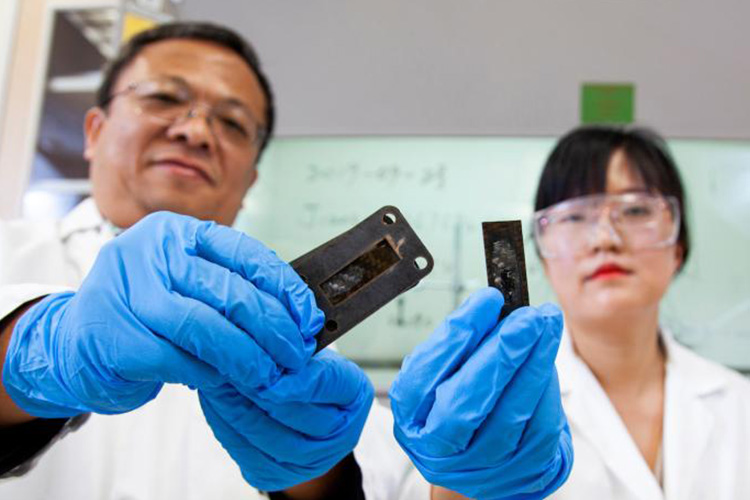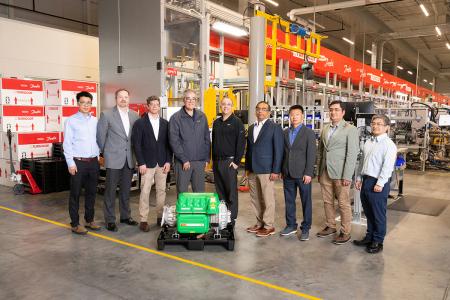
Research
We capitalize on the study and application materials to optimize their performance, whether it's creating stronger, lighter composites for aviation, more efficient semiconductors for electronics, or environmentally friendly materials for energy storage.

Graduate
Advanced degrees from the Department of Materials Science & Engineering prepare students for high-level jobs in industry, research and higher education (faculty).
Researchers at the FAMU-FSU College of Engineering are leading a new study to develop perovskite-polymer composites that can be 3-D printed for high-resolution pixelated radiation detectors and other devices, like detector arrays.
Associate professors Zhibin Yu and Tarik Dickens received a half million dollars grant to research radiation detectors and the challenges associated with processing and manufacturing these types of devices.

The Applied Superconductivity Center (ASC) advances the science and technology of superconducting magnets, working from atomic-scale fundamentals through complex conductors to constructing the highest-field superconducting magnets yet made.


